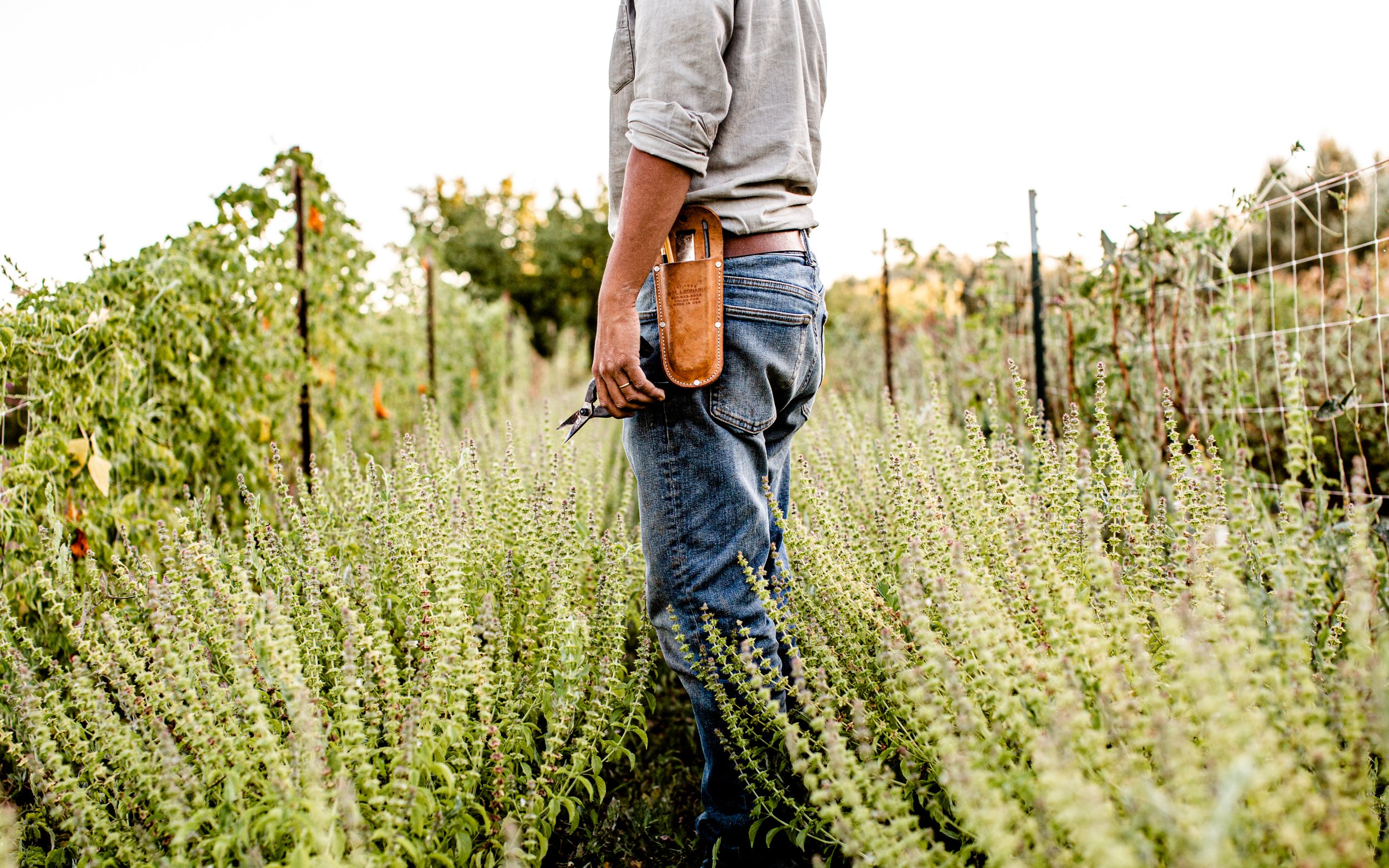Farming in the Era of Climate Change
April 25th, 2024
[Read time: 15 minutes]
Introducing Our Climate Resiliency Series…
Over the next month, we will share three client stories focused on drought, fire, and flood. Our intention is to provide a deeper picture of the climate crises facing Northern and Central California regions, the direct impact on individuals and businesses within our client community, and the enduring resilience our clients reflect in adapting and rebuilding. Learn about KTA’s response to supporting these clients and how you can join us in strengthening our collective resilience toward ongoing shifts in our climate.
Note: This series will discuss some intense experiences and events that may be triggering for some individuals.
A Complex Reality
A statewide drought leaving thousands without reliable access to water. Catastrophic fires burning hundreds of miles of land across California. Torrential storms and floods destroying fields, infrastructure, homes, and more. The reality of climate change is no longer distant — it is now, happening quickly and across a massive scale. Over the past years, small farmers and ranchers across California have been subjected not only to a worldwide pandemic, but also the worsening effects of climate change, seen in fires, droughts, floods, storms, and extreme heat. Their businesses and livelihoods have been tested time and again, forcing business owners to tap into a dwindling supply of resilience to keep themselves, their families, and their businesses afloat.
Our team at Kitchen Table Advisors has witnessed farms and ranches in our client community close down, lose revenues and necessary infrastructure, and shift markets and locations, while the business owners have endured trauma, health issues, and loss in the wake of these catastrophic events. And yet, we have also simultaneously seen farm businesses adapt and grow deeper roots in their communities, fostering hope, creativity, and collaboration.
Over the next month, KTA is sharing three client stories through our series on climate. Focused on drought, fire, and flood, we will bring you into the complex reality of farming in the age of climate change. You will hear about our clients navigating and working to recover from these crises, and the resilience that underscores it all. These stories remind us of the shared work to be done both now and into the future to safeguard a livable and resilient climate.
Floods - Nancy Nuñez of Picoso Farm
(Central Coast)
Maria “Nancy” Nuñez of Picoso Farm started her business with her partner Jose back in 2018 with two goals: to nourish their community and create a sustainable livelihood for their family. At first, they started by growing only 6 rows of strawberries, wanting to see if an agricultural business was viable for their family. They initially sold their berries through a farmstand located next to Highway 101 in Gilroy, capitalizing on their highly trafficked location and fostering a name for their business within the community. Fueled by their initial success and the connections they seeded, Nancy and Jose eventually scaled up from 6 rows of strawberries to 4 acres. As their business grew, Nancy continued to maintain personal relationships with her customers when expanding into farmers markets, cultivating loyal, lasting connections for her business. It was during this time that Nancy and Jose started looking towards buying themselves and their five children a permanent home and farmland to establish roots together.
Nancy was one of many farmers KTA supported who experienced the 2023 winter storms and floods firsthand, with both her business and dream of home ownership drastically transformed. In the winter of 2023, a series of atmospheric rivers swept across Northern and Central California with torrential rain, wind, landslides, and floods destroying communities. The storms hit intensely and quickly, giving communities little time to react before the impacts of the flooding intensified. By January, over 500,000 homes and businesses across California were left without power with 96,000 residents evacuated. Farmers and ranchers across the San Mateo Coast, North Bay, Yolo and Sacramento Counties, and Central Coast experienced hundreds of thousands of dollars in damage as the floods washed away crops, tools, infrastructure, and even houses. Most of all, many of these individuals endured immeasurable trauma as they tried to respond and recover in the storms’ wake. Atmospheric rivers are expected to intensify and become more frequent while our food system expects that small producers can not only withstand them, but sustain a livelihood despite limited capital and resources.
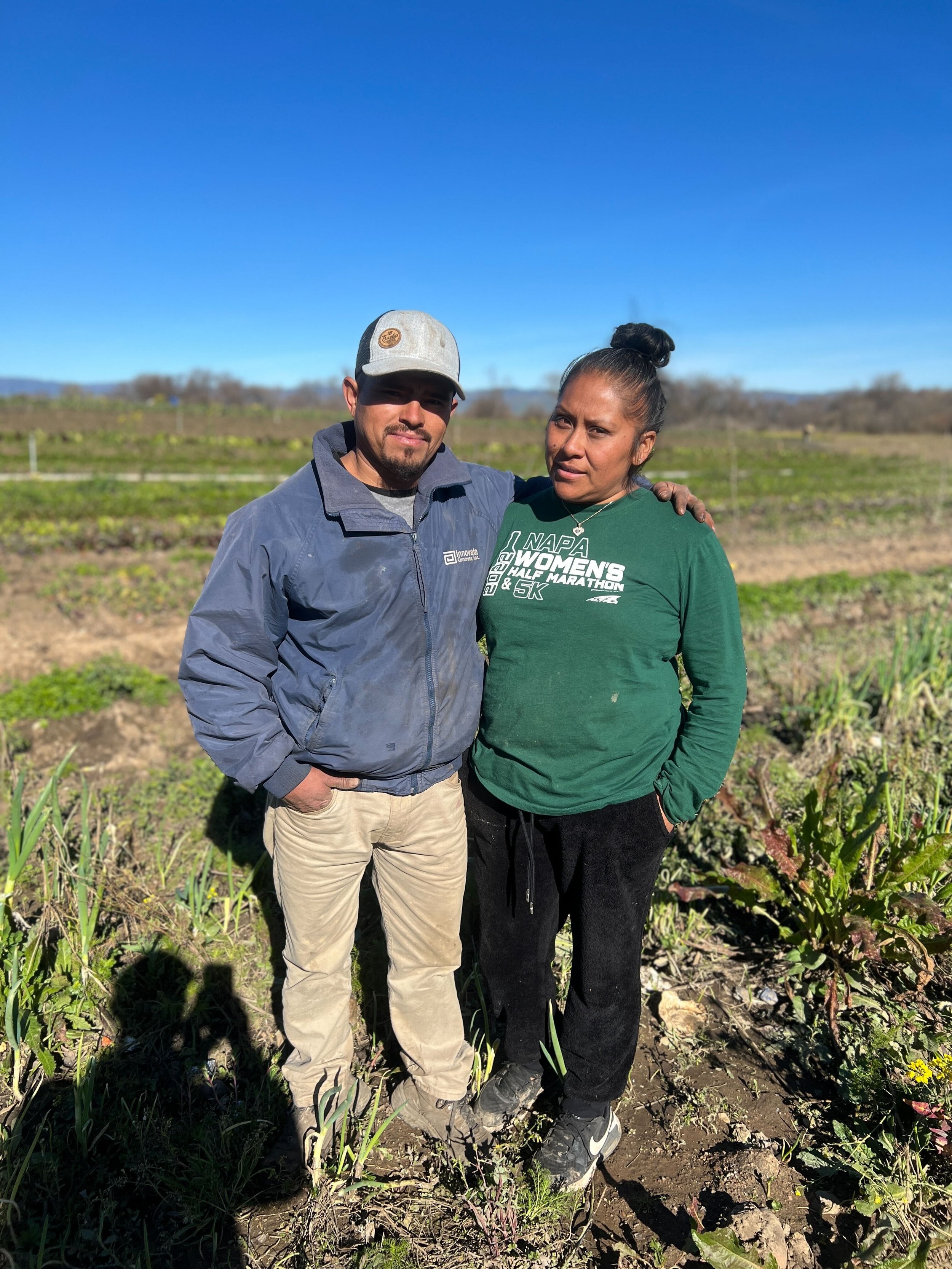
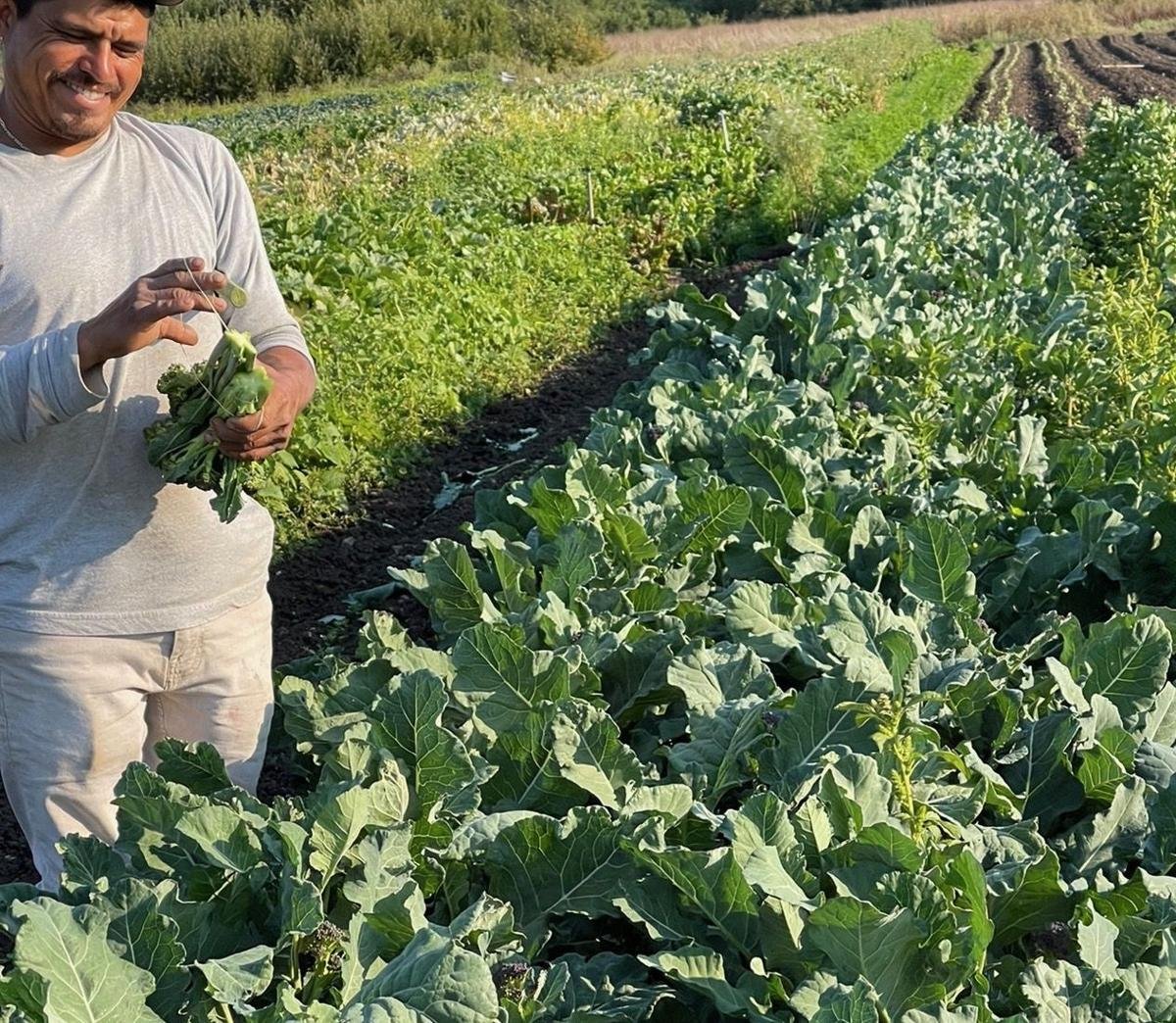
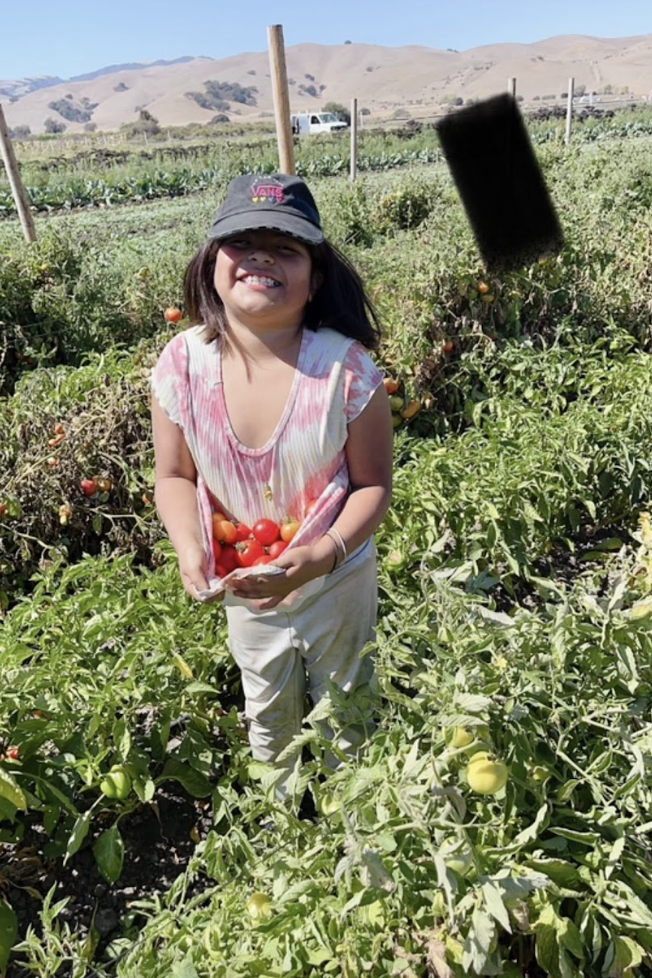
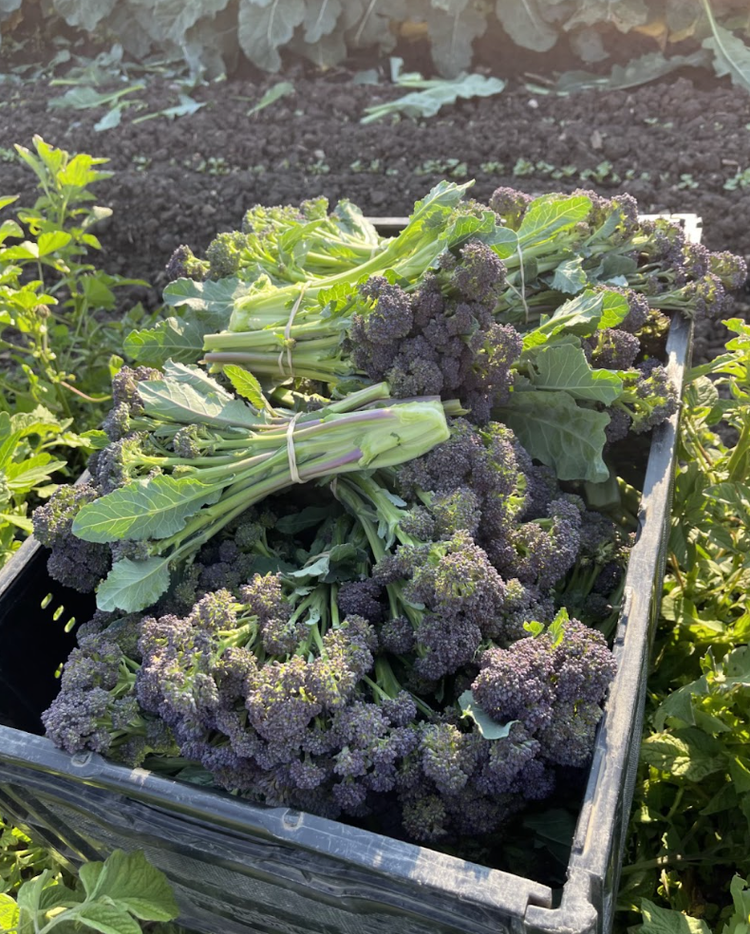
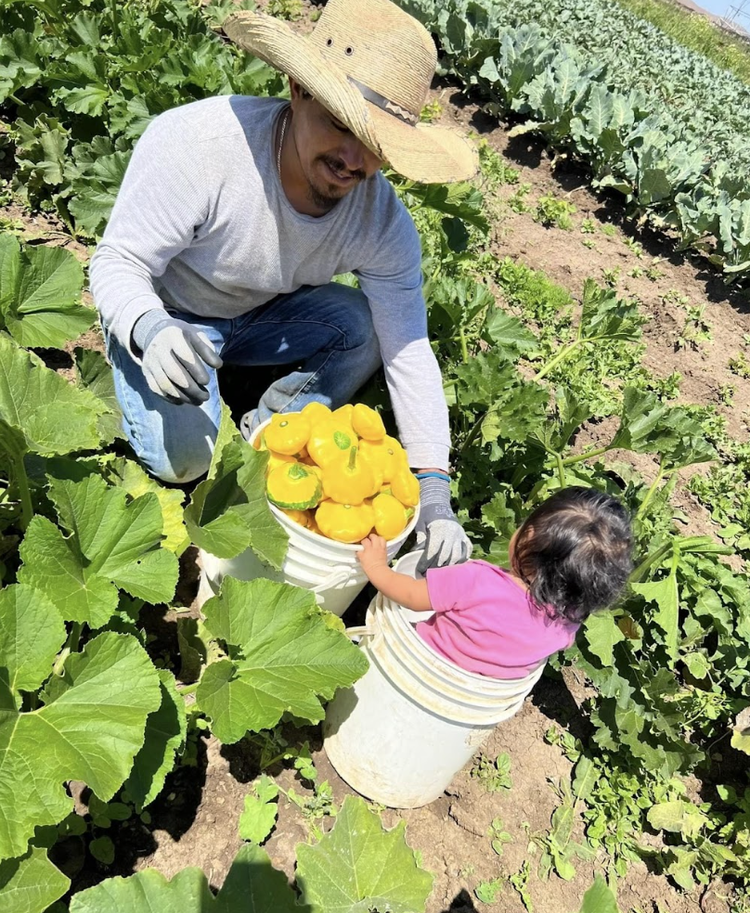
In the initial storm, Nancy’s farm and family were fortunately able to relocate much of her equipment out of flood zones, though she lost 2 acres of her crops to flooding. As the storms continued to sweep across the region, her farm eventually flooded again in March. This time, the effects were much more drastic – not only were 2.5 acres of her farm re-flooded, but Nancy’s home was too. Nancy lost her crops, clothes, furniture, documents, farm equipment, and more as the storm irreparably damaged her house. In all, the damages were estimated at around $30,000 – a massive financial hit for which Nancy was not prepared. Nancy, Jose, and their five children were forced to move into a hotel room as they began to search for a new place to live.
Though the loss Nancy and her family endured was immensely difficult, Nancy stayed strong for her children, grounding in her belief that optimism and hard work could help her find her footing. Her first step towards rebuilding was securing a place to live. Initially, Senior Farm Business Advisor Henry Catalan connected her with the Community Agency for Resources, Advocacy, and Services (CARAS) in the Central Coast, an organization that supported Nancy find and finance a hotel room. As a family of seven, the room proved cramped and unsustainable for them. With little established credit history to fall back on, Nancy had to move through multiple unstable housing situations, causing much distress and disruption for her family. Finally, in September of 2023, she was able to secure an apartment for her family with help again from Henry and CARAS.
Finding relief aid was also crucial to Nancy and her business; after the second wave of storms, Henry was able to help her apply for Federal Emergency Management Agency (FEMA) funding and connected her to local community organizations such as the Watsonville Food Bank that could assist her family as they rebuilt the business. Drawing on the loyal relationships she had cultivated and maintained over the years, Nancy also turned to her community for support. Henry helped organize a GoFundMe to assist with expenses like buying new transplants and tools as well as paying for her hotel room and trailer, and her farmers market community rallied in support of the farm by coordinating donations towards her business. In this time of crisis, Nancy’s committed community was able to come to her and her business’ aid, allowing Nancy and Jose to even plant new strawberries later in 2023. Furthermore, Nancy’s incredible resilience has carried her business forward into the 2024 season, and reconnected her with her dream of purchasing farmland and owning a home.
Even with the immense strength and determination Nancy has shown in the face of this climate catastrophe, the risk of these atmospheric rivers to her business remains at large with very little action she herself can take. Despite the risk of another flood, Nancy and Jose made the decision to stay on their leased land, hoping to maintain their valuable investments in soil health and farm infrastructure as well as save capital for a more permanent move elsewhere. Their ultimate goal is to find a small parcel of quality farmland that they can purchase; one that not only meets their business’ needs but also keeps their family safe and sheltered from future floods. Nancy is actively working towards this vision with Farm Business Advisor Gerardo Fuentes by re-organizing her business management strategy and sourcing crop insurance for the wide variety of vegetables she produces. As Nancy invests in her farm each day, moving closer to her vision of farmland ownership and a more secure future for her family, she’s driven by her personal philosophy: “Doing what you love, you never work a day in your life.”
Support Nancy and Picoso Farm
Napa Farmers Market, Sat 8am-12pm
Martinez Farmers Market, Sun 9am-1pm
Cupertino Farmers Market, Sun 9am-1pm
Moraga Farmers Market, Sun 9am-1pm
Evergreen Farmers Market, Sun 9am-1pm
Seasonal Farmstand in Gilroy
Drought - Kayta and David Plescia of West County Community Farm (North Bay)
David and Kayta Plescia of West County Community Farm started their farm business in 2017 on a parcel leased at Green Valley Farm & Mill in Sebastopol. They originally met working at Caretaker Farm in Massachusetts, hoping to connect more deeply with the land and their food. Eventually, the two moved west and founded their own venture, what was then called Green Valley Community Farm. Their unique CSA model, inspired by Caretaker Farm, is a free-choice style CSA that includes u-pick produce, flowers, herbs, and berries, on-farm events, and a standing invitation for members to visit the property whenever they’d like. In this way, David and Kayta create openings for community to flourish through their farm.
David and Kayta’s experience farming in the North Bay has been deeply shaped by drought. When Kayta and David started leasing from Green Valley Farm & Mill in 2017, nobody on the property could remember a time over the past forty years when their water supply, an irrigation pond, had run dry. This was true for their first three years in operation, allowing Kayta and David’s business to find roots in their community. In late 2020, as the drought in California intensified and the landscape in Sonoma County became increasingly parched, the irrigation pond soon became an area of concern when the historically abundant winter rains failed to recharge it to its normal level. By the beginning of 2021, the irrigation pond was almost completely dry.
Drought heavily affects small producers’ livelihoods; a lack of a reliable and consistent water source means that farm businesses, especially those with fewer resources, are highly limited in the crops they can grow and livestock they can raise. While well-resourced businesses often drill new, deeper wells to access more groundwater, this wasn’t an option for Kayta and David. As the pond was David and Kayta’s sole source of irrigation water, they were forced to stop vegetable farming altogether in 2021 and only offer their herb, flower, and berry u-pick program – a decision that was incredibly difficult. With support from Senior Farm Business Advisor Lily Schneider, they were able to calculate a series of cost projections that helped them move forward with the decision, knowing that flexibility and communication with their community would be key to making the change. In the meantime, they pursued other avenues of revenue, with Lily helping them apply to grants and relief funds as well as shift their business plan while they waited to see how the drought would progress. Even still, the future was uncertain as they knew that pausing their vegetable production was only a temporary solution.
Learn More: California’s Droughts
Over the past few decades, California has experienced several historic, multi-year droughts that have severely drained groundwater and reservoirs, with the most recent starting in 2020 and ending in 2023. In Sonoma County, as in many other parts of the state, water reserves have run low. From May until November of 2021, the USDA designated Sonoma County as experiencing a “D4: Extraordinary Drought”, with the overall year being considered Sonoma County’s worst drought year on record. With climate change worsening global droughts and quality land with water access in Sonoma County becoming more scarce and expensive, these droughts not only jeopardize small farms and ranches’ futures but the very foundation of the regional food system.
As the pond was David and Kayta’s sole source of irrigation water, they were forced to stop vegetable farming altogether in 2021 and only offer their herb, flower, and berry u-pick program – a decision that was incredibly difficult. With support from Senior Farm Business Advisor Lily Schneider, they were able to calculate a series of cost projections that helped them move forward with the decision, knowing that flexibility and communication with their community would be key to making the change. In the meantime, they pursued other avenues of revenue, with Lily helping them apply to grants and relief funds as well as shift their business plan while they waited to see how the drought would progress. Even still, the future was uncertain as they knew that pausing their vegetable production was only a temporary solution.
The 2021 season gave them time to reflect on their long-term business goals and vision. They began conversations to lease a larger property with abundant water, a serendipitous opportunity that would allow them to scale up their business for long-term financial viability. Importantly, too, the new property had quality soil, values-aligned landowners, and was located adjacent to the Laguna de Santa Rosa, with a reliable source of well water for their farm. Uprooting and moving their farm was a tough decision, but they were clear on their long-term business vision and goals. They once again turned to Lily who supported them through their decision-making process of moving properties as well as building cash flow budgets and financial projections. The new property was beneficial in more ways than one – not only did its close proximity allow them to keep many customers and save resources, but its availability saved David and Kayta from what could have been a long, strenuous land search. With future business planning support from Lily, David and Kayta re-established their farm, eventually going on to more than double their CSA members from 2020 to 2024. Now more than ever, David and Kayta are building their business with flexibility in mind. Using the valuable planning approach Lily brought to their business, they have been able to plan out logistics and finances for expanding their farm, adding more CSA members, and even welcoming a child into their family.
When reflecting on the 2021 drought, Kayta and David cite several factors as allowing them to survive – luck, community support, and their ability to adapt and plan for challenges. Before they were connected to their new parcel of land, they were even considering moving out of state due to the sheer lack of available, quality farmland in Sonoma County. David and Kayta know that not all producers will have the same fortune or access to similar resources. For them, food production is a public service, and they hope that food and those that produce it can be additionally supported by state and local governments, especially as small farmers and ranchers face limited water and other resources. In the meantime, as they look towards a future where climate change threatens their farming community, David and Kayta continue to rely on their own adaptability, resiliency, and community in order to thrive.
The final installment of our Climate Resiliency Series on fire will be released at the end of May.
The final installment of our Climate Resiliency Series will be released at the end of May.
Photo credits: Namu Farm by Nicola Parisi, Picoso Farm, West County Community Farm

